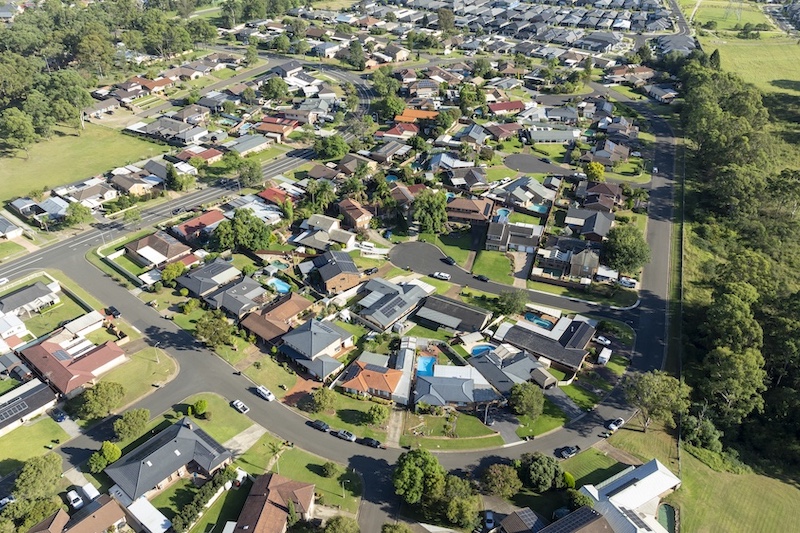Keywords: Social Services
There are more than 24 results, only the first 24 are displayed here.
Become a subscriber for more search results.
-

AUSTRALIA
As grief, anxiety, and everyday struggles are increasingly pathologised, are we losing sight of what it means to be human? A GP reflects on the difference between normal emotional pain and clinical illness—and why, sometimes, what patients need isn’t a prescription, but time, compassion and support.
READ MORE
-

AUSTRALIA
- Barry Gittins
- 21 May 2025
As extreme weather becomes more common in Australia, so too do deaths from heat and cold. And those who suffer most are the most vulnerable: the poor, the unhoused. What does it mean to survive the climate when comfort is a privilege, not a right?
READ MORE
-

RELIGION
- Andrew Hamilton
- 21 May 2025
When Donald Trump accepted a luxury jet from Qatar, many shrugged. It was just Trump being Trump. But his brazenness reveals deeper fault lines in our culture, where gifts are rarely free and power expects reward. Has our transactional age eclipsed ideals of grace, gratuity, and service completely?
READ MORE
-

AUSTRALIA
- David Halliday
- 15 May 2025
What happens when governments underfund the services that hold our social fabric together? Economist David Gilchrist exposes a system in quiet crisis where rising need meets shrinking support, and nonprofits face collapse under the weight of outdated policies, inadequate data, and market myths that threaten the future of social care in Australia.
READ MORE
-

AUSTRALIA
- Erica Cervini
- 14 May 2025
Adam Bandt’s unexpected loss in Melbourne has sent shockwaves through the Greens’ ranks. Once poised for expansion, the party is now reckoning with a bruising election result, voter backlash, and a confused identity. In their heartland, even the most loyal supporters seemed ready to walk away. So what happened?
READ MORE
-

RELIGION
- Andrew Hamilton
- 12 May 2025
What kind of Pope will Leo XIV be? In the wake of Francis, this new pontiff inherits both a vision and a world in flux. With a global sensibility, and a unifying motto, his early gestures suggest a leader shaped by harmony, not polarisation, and attentive to human dignity.
READ MORE
-

AUSTRALIA
The 2025 election marked a pause in Australia’s political life. As old policy narratives falter, we have an opportunity to ask ourselves: what kind of society are we trying to build? Across faiths and traditions, the idea of the common good offers a path forward beyond division and drift.
READ MORE
-

AUSTRALIA
- Andrew Hamilton
- 07 May 2025
In an election full of surprises, the most revealing were not electoral upsets but glimpses of unexpected humanity. Peter Dutton’s gracious concession contrasts with his public record, and urges a politics where words don’t wound, and dignity is not reserved for private life alone.
READ MORE
-

ARTS AND CULTURE
- Andrew Hamilton
- 02 May 2025
In an era of reflex opinion and vanishing accountability, moral seriousness can seem an anachronism. Yet history teaches that ideas — and the people who defend them — shape lives and nations.
READ MORE 
-

RELIGION
- Andrew Hamilton
- 01 May 2025
Three elections, three systems, one shared question: what kind of person should lead? As voters and cardinals choose their next leaders, attention turns from policy to personality — to character, courage, and conviction. In an age of division, the qualities that guide a life may yet decide the fate of nations.
READ MORE
-

RELIGION
- John Warhurst
- 30 April 2025
Faith, once a quiet undercurrent in Australian elections, is now entangled in questions of ethnic identity, foreign policy and cultural grievance. Religion has returned to the centre of political life, only to find itself more divided, and more contested, than ever before.
READ MORE
-

AUSTRALIA
- Bronwen Clark
- 24 April 2025
As Australia moves through another federal election campaign, a quarter of a million new voters in the nation’s outer suburbs remain largely invisible in political discourse. These are not marginal communities in the cultural or economic sense; they are the nation’s most dynamic zones of growth, diversity, and aspiration.
READ MORE